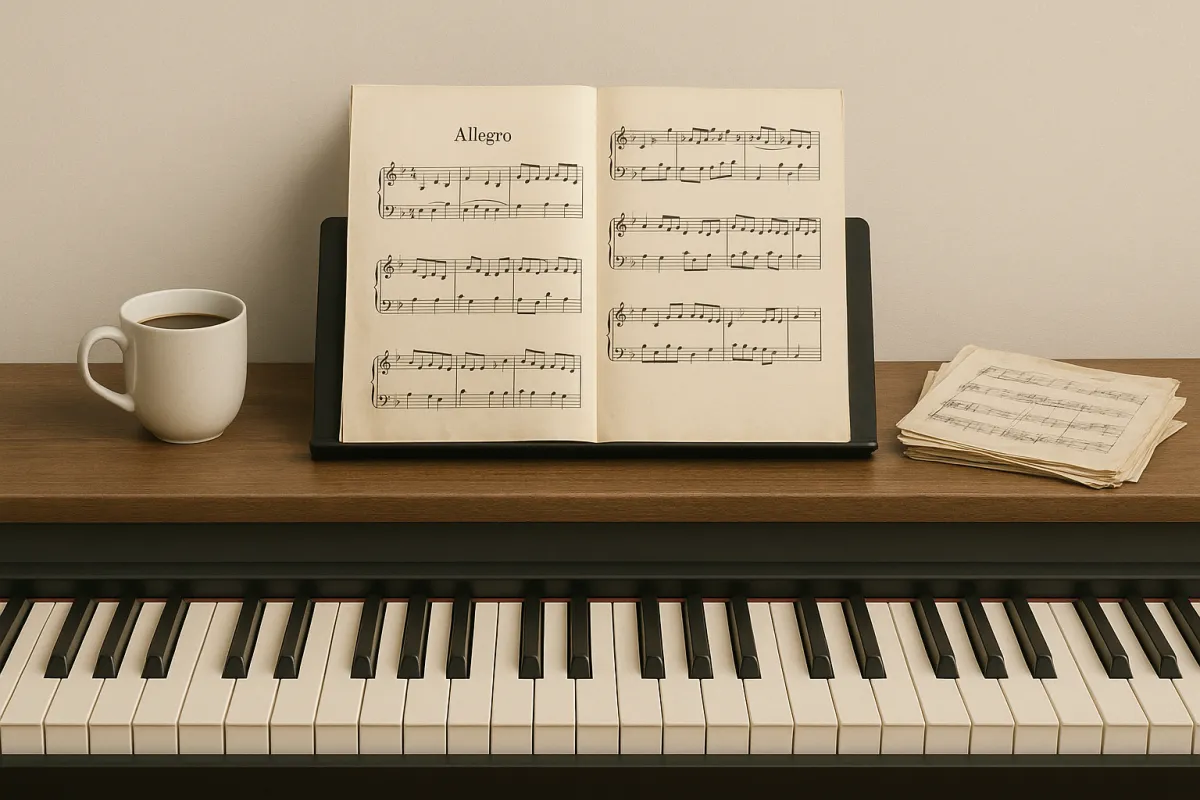
Piano Lessons Are Too Expensive! Is Musical Joy Only for the Privileged Few?
💸 “Piano Lessons Are Too Expensive! Is Musical Joy Only for the Privileged Few?”
You’ve probably thought it.
You’ve definitely heard it.
“Piano is for the rich.”
Cue images of children in blazers gliding through Chopin on a baby grand while their parents sip single-origin coffee.
Let’s get this straight:
🎹 Piano is not just for the privileged.
Yes, private lessons can be pricey. And no, you don’t need a Steinway to learn. If you’ve been holding back because you think piano is financially out of reach, you’re not alone — but you’re also not helpless.
In this post, we’re going to unpack the myth of cost and explore smart, modern ways to make piano learning truly accessible — without cheapening the experience or compromising your growth.
⸻
🪙 “Don’t Let Money Be the Villain — There Are Clever Ways to Learn Without Breaking the Bank”
Let’s be honest: good teachers are worth paying for — and as someone who teaches piano professionally, I say that not from ego, but from lived experience. A seasoned teacher can save you years of confusion, frustration, and repetitive mistakes.
But that doesn’t mean the only two options are:
1. Expensive weekly lessons
2. Doing everything alone in frustration
You now live in the golden age of hybrid learning.
Want some options? Here’s a starter menu:
• ✅ Trial lessons — many teachers (myself included) offer low-cost trial sessions.
• ✅ Shared lessons — pair up with a friend for a buddy session at half the cost.
• ✅ Monthly group workshops — these can supercharge your learning at a fraction of 1:1 rates.
• ✅ Online video platforms — structured content can be a good warm-up or supplement.
• ✅ Practice accountability groups — often free, with guidance and community built-in.
🎯 The goal isn’t to spend zero — it’s to spend wisely.
And most importantly, to realise that not learning also has a cost — the quiet regret of never trying.
⸻
🎹 “Used Keyboards, Shared Lessons, Online Tools — The Budget-Friendly Beginner’s Toolkit”
Now let’s talk gear.
Another reason beginners give up before starting is they think they need a £3000 instrument just to “do it properly.” Not true.
🎹 Used digital pianos (with weighted keys) can be found online for £100–£200.
Even basic 61-key keyboards under £100 are enough to get started.
If you’re unsure whether this is a long-term journey, rent first. Some music shops offer rent-to-own schemes. Or better yet — borrow from a friend who hasn’t touched their keyboard since the pandemic. (You know they’re out there.)
For accessories:
• Free apps can help you tune your ear.
• Printable sheet music is widely available.
• YouTube has thousands of demos, though quality varies — choose carefully.
In other words: don’t wait for the perfect setup. Start with what you have.
Remember, the most expensive piano in the world still needs someone to sit down and press a key.
⸻
🧠 “Why Piano Isn’t an Expense — It’s a Long-Term Investment in Your Brain and Joy”
This is the real crux of the issue.
If you’re thinking about cost, flip the question:
“What do I want to spend money on?”
“What else gives me this much joy, discipline, brain development, stress relief, and personal growth?”
Piano is:
• A form of meditation
• A self-expression tool
• A mental workout
• A life companion
It teaches patience, focus, consistency — all traits that overflow into your work, relationships, and emotional life.
And unlike that fancy air fryer or forgotten gym membership, piano skills never expire.They compound.
I’ve seen my adult students light up after playing “Let It Be” for the first time.
They didn’t care whether their keyboard cost £99 or £999.
They cared that they did something they never thought they could.
That feeling? It’s priceless.
⸻
🎬 Conclusion: Start With One Step — Not a Full Symphony
If cost has been your biggest fear, take a deep breath.
No, you don’t need to commit to a lifetime of weekly lessons right now.
No, you don’t need a concert piano in your flat.
What you do need is this:
• A plan that fits your lifestyle
• Tools that meet you where you are
• A mindset that says: “I’m worth this.”
Because you are.
The joy of making music — even clumsy, early music — is not reserved for the wealthy, the talented, or the young. It’s for anyone brave enough to start.
And if that’s you?
👏 Welcome.
